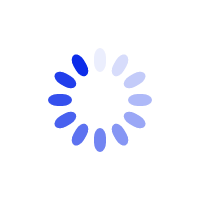Beyond Surveys: How to Measure Outcomes Using Alternative Data Collection Methods
Summary
Outcome measurement is a way for libraries to assess their impact on the people they serve and helps libraries answer the question, “What good did we do?” With a vast number of ways to collect outcomes, it may be overwhelming to identify which data collection methods to use. Choosing the methodology also depends on the library’s learning goals, time limitations, staff capacity and more. This webinar is designed to help libraries learn what methods are available to them, and the benefits and challenges to each. This webinar will highlight several methods, with an emphasis on focus groups.
This webinar is the third in a series featuring Project Outcome’s Outcome Measurement Guidelines, designed to help guide and provide additional support for outcome-focused data collection. Past archives of this series, How to Develop Outcome Measures & Design Effective Surveys, presented on April 11, 2018, and Working with Partners: How to Plan for Collaborative Outcome Measurement, presented on January 31, 2018, are available for viewing.
Learning Outcomes
At the conclusion of this webinar, participants will:
- Know what Project Outcome’s Outcome Measurement Guidelines are and how they help support libraries’ data collection efforts;
- Understand various types of outcome data collection methods, including pre-post measurement, skills tests, behavior observation, interviews, and focus groups; and
- Be able to apply what they learned to conduct their own focus group in their library.
Who Should Attend
This webinar is open to everyone but will be most helpful to libraries interested in measuring outcomes. The content and resources provided in this webinar are free but accessing them does require a Project Outcome account. PLA’s Project Outcome is free online toolkit designed to help public libraries understand and share the impact of their programs and services by providing simple surveys and an easy-to-use process for measuring and analyzing outcomes.
Instructors
Emily Plagman is the project manager for PLA’s performance measurement initiative, Project Outcome, funded by the Bill & Melinda Gates Foundation, overseeing its development and implementation. Prior to joining PLA, Emily worked as a project manager at the Chicago Metropolitan Agency for Planning on an energy efficiency grant. Emily received her Master’s in International Public Affairs from the LaFollette School of Public Affairs at the University of Wisconsin and her Bachelor’s in Political Science at Marquette University.
Holt Zaugg is the assessment librarian at the Harold B. Lee Library at Brigham Young University. He holds degrees in Psychology, Educational Design, Library Science, and Educational Research. He has over 20 years of experience working in the K–12 school system, including 11 years as an instructor for teacher professional development. His current focus is on assessment of academic library services and spaces. Some examples of this assessment program include development of library personas, communication network analysis, and interactions between library security employees and library patrons or library employees. He seeks to further understand trends and patterns in academic libraries to provide safe and caring spaces for students to study, collaborate, and learn.


